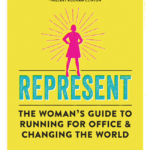With August in full swing, soon it will be time for the school year, and for high schoolers, that means standardized tests! Workman just published a new edition of Up Your Score: The Underground Guide to the SAT, the for-students, by-students strategy guide for kicking multiple choice butt. Guest editor of the previous edition Alan Hatfield (now a Princeton student) talked to our new guest editor, JaJa Liao (soon to be a Yale freshman), about test taking tips and life after the SAT.
 Alan: Congratulations on your new role as the next guest editor of Up You Score! I’m so excited to meet you and I know that you’ll do a fabulous job. I’ve been on the job for a couple years now and I’ve had a great experience, getting to do a host of promotional projects, such as a radio drive, managing the FB and Twitter pages, and making an appearance on network TV.
Alan: Congratulations on your new role as the next guest editor of Up You Score! I’m so excited to meet you and I know that you’ll do a fabulous job. I’ve been on the job for a couple years now and I’ve had a great experience, getting to do a host of promotional projects, such as a radio drive, managing the FB and Twitter pages, and making an appearance on network TV.
JaJa: First off, thanks! I’m really excited about the experience ahead of me, and hopefully I’ll do a good job. So, for the readers out there, tell us about yourself (aside from the perfect score)…
Alan: I just finished my freshman year at Princeton University, which kept me on my toes, and also gave me an amazing opportunity to meet fascinating people, most of whom have amazing SAT scores and are brilliant at at least one thing. I danced on the Bhangra team, wrote for a student magazine, and competed on the Model UN Team, all of which required a lot of time to balance with my classes and the Up Your Score stuff. Your turn!
JaJa: Congrats on finishing your freshman year while doing so many extracurricular activities. I’ll be entering Yale this fall and looking at double majoring in either Chemistry/Anthropology or Molecular Biophysics and Biochemistry/Anthropology though I am open to other combinations. What’s your major and what are you up to this summer?
Alan: I’m planning on majoring in public policy with possible certificates in Near Eastern Studies, East Asian Studies, or possibly Computer Science. As for the summer, I’m going to Nanjing, China for two months to teach English.
But back to Up Your Score. I’ve had a blast working with the book and I realized that taking time to reflect on the test itself gave me some crucial insights that I think are important to focus on when helping guide people’s experience with the test. Practice is CRUCIAL. I can’t emphasize this enough. The test is constructed with a specific purpose and in a specific way, meaning that there’s a definitive structure to the questions that I think can be intuited after taking enough practice questions and practice tests.
JaJa: I totally agree with you that the SAT has a definitive structure that can be decoded once you become familiar enough with it after practicing. Adequate practice allows you to see the pattern of questions that occur on the SAT, which I find only has a few tricks up its sleeve with a few variations. Personally, I found it extremely helpful to answer questions based on the magic “if.” I thought of questions in my head like “if I were a test maker, which one of these options would I have put just to trick people?” and “if I were a test maker, what am I trying to test by asking this question?” etc. I also feel that on multiple choice tests such as the SAT, you don’t necessarily need to know the material 100% to get the question right, but you do need to have good strategies. I’d love to hear your testing philosophy.
Alan: I definitely agree with your thoughts on strategy over knowledge. The SAT isn’t a test of knowledge by any means, it’s more a pressure-under-fire type of endeavor. With enough time any student can eventually come to the correct answer on any question the SAT throws at them, the only obstacle is time. That’s why I’m a big advocate of thoughtful and deliberate first-runs through questions.
I feel like testing philosophies that advocate some kind of prioritization or “skipping” of difficult questions can sometimes be counterproductive to students, because they prompt the tendency to rush or at least only half-heartedly commit to questions that may look intimidating or difficult from the very first glance. I’m much more an advocate of a testing philosophy that focuses on self-confidence in the sense that starting from the idea that for every student taking the test the correct answer is definitely attainable, students should treat every question as do-able.
JaJa: Another tip that I think is pretty helpful is to not overthink the questions. If you think about it, the SAT’s difficulty is not high at all. This is especially true for the math section. If you ever took Algebra I and Geometry, you will know all of the concepts on the math section. A lot of people freak out when they see the math section for the first time because the ETS purposefully words questions awkwardly to make things a bit more challenging. In reality, there are only so many topics that the ETS can test you on, so what I recommend for the math part would just to go over the topics thoroughly if you find that you keep on missing the same kind of problems. For example, if you discover that you are always stumped by the probability questions, just skim through a short textbook lesson on probability instead of skipping over it. Over time, you will find that there is a kind of pattern that reoccurs. This way you will be ready next time to solve all kinds of probability problems.
Alan: That’s enough test talk for today. Nice to meet you, and good luck staving off the Evil Testing Serpent!
JaJa: Thanks, I’ll try to follow in your footsteps. Viva la Up Your Score!





No Comments